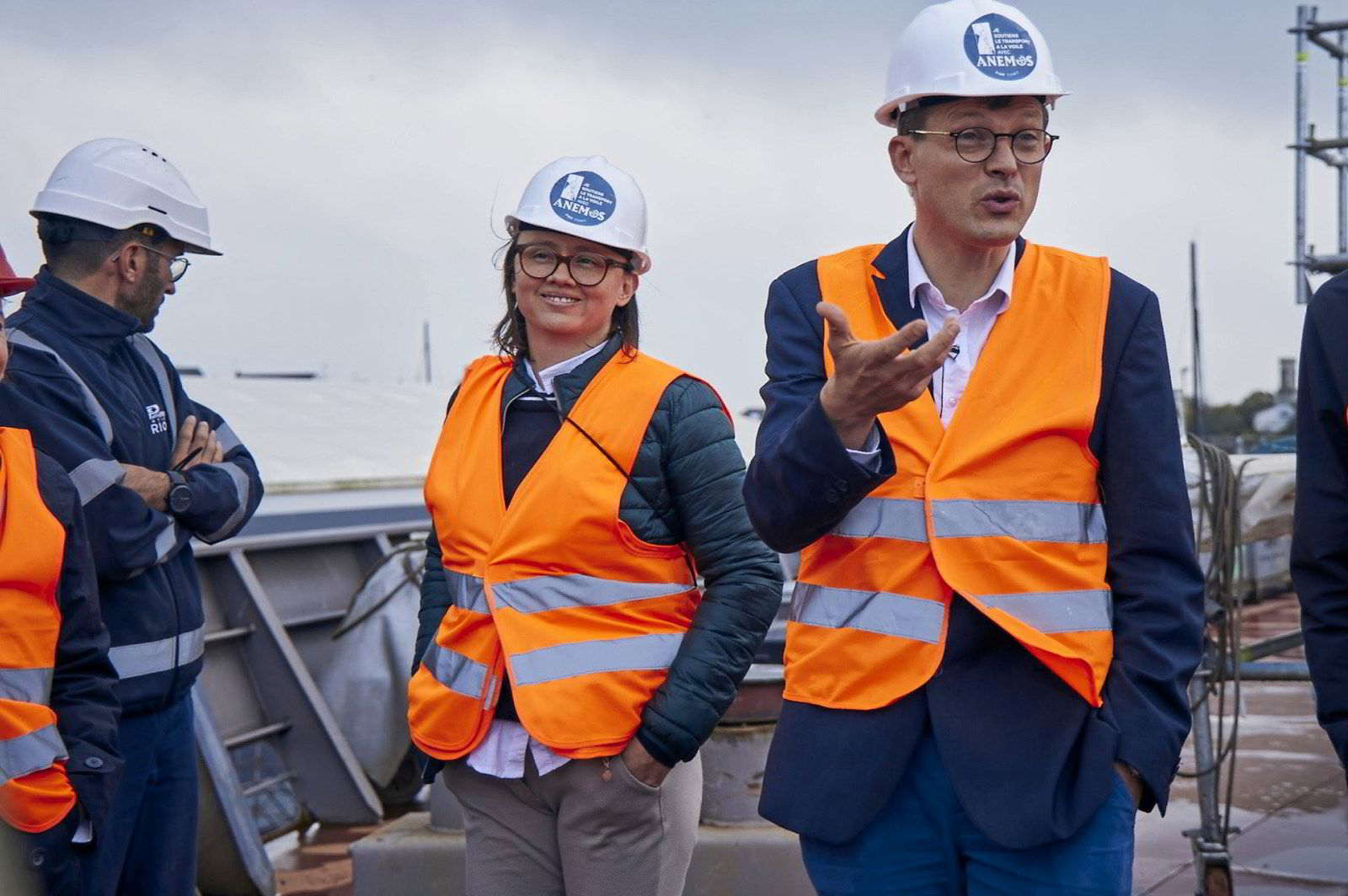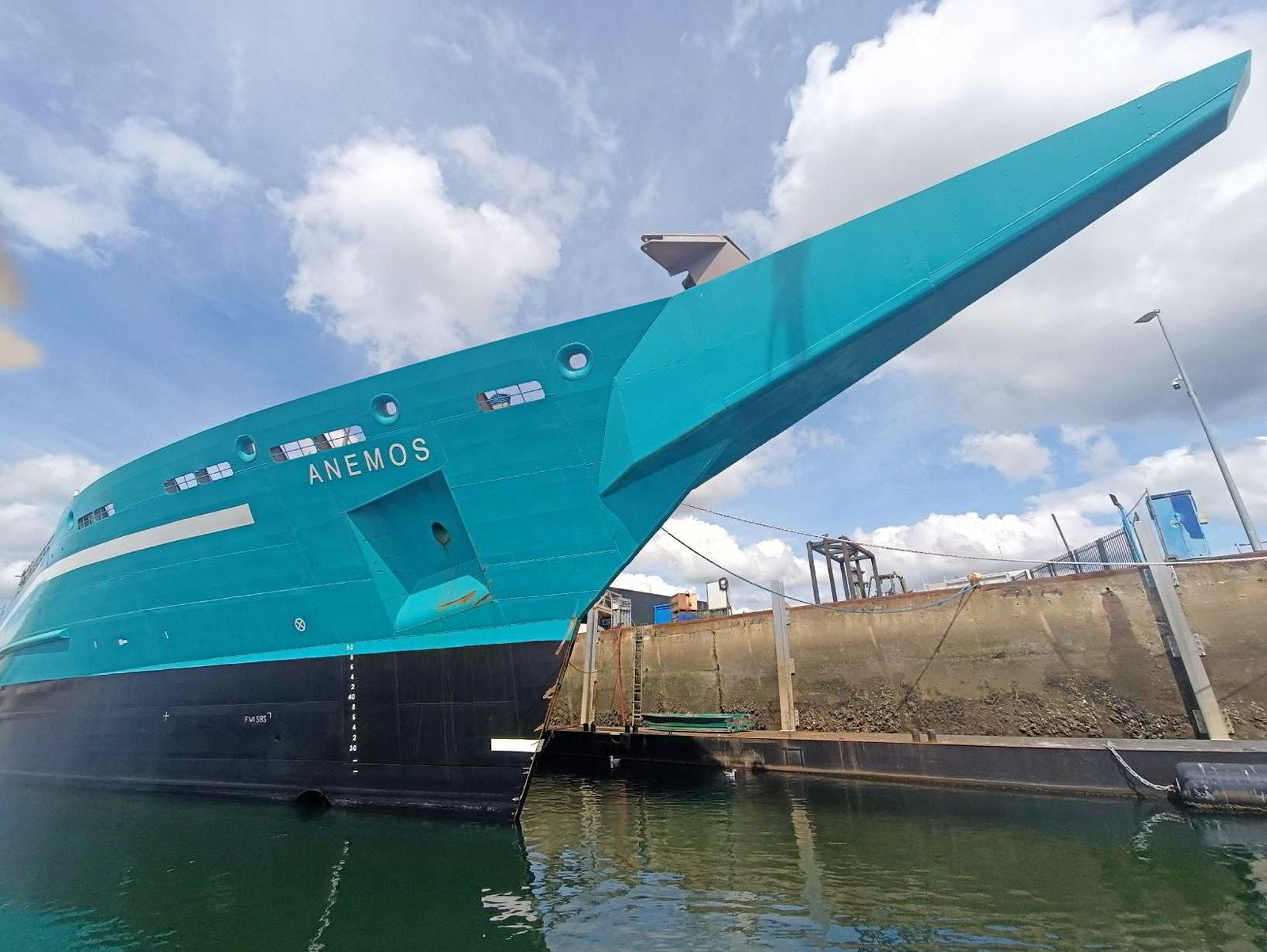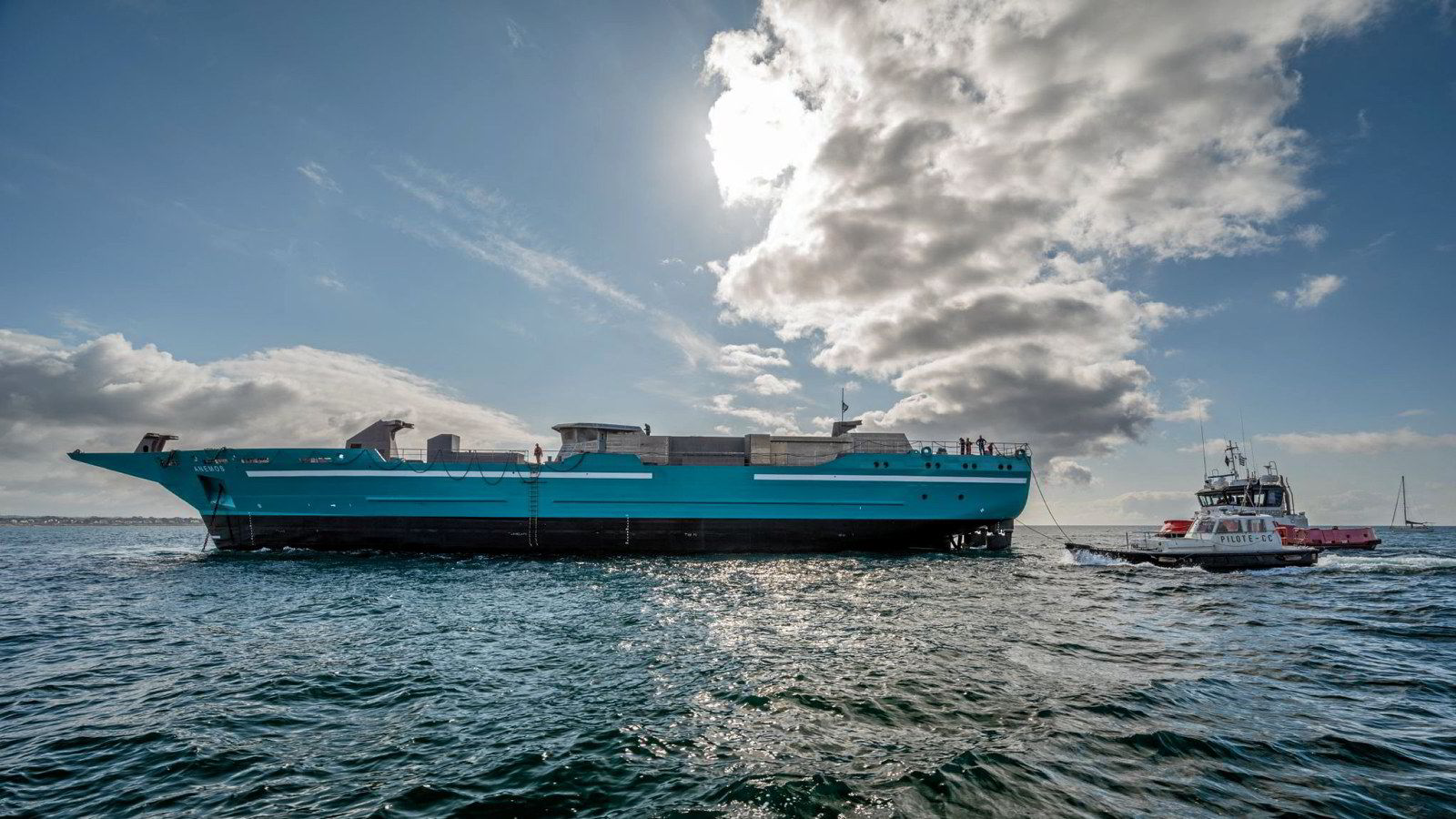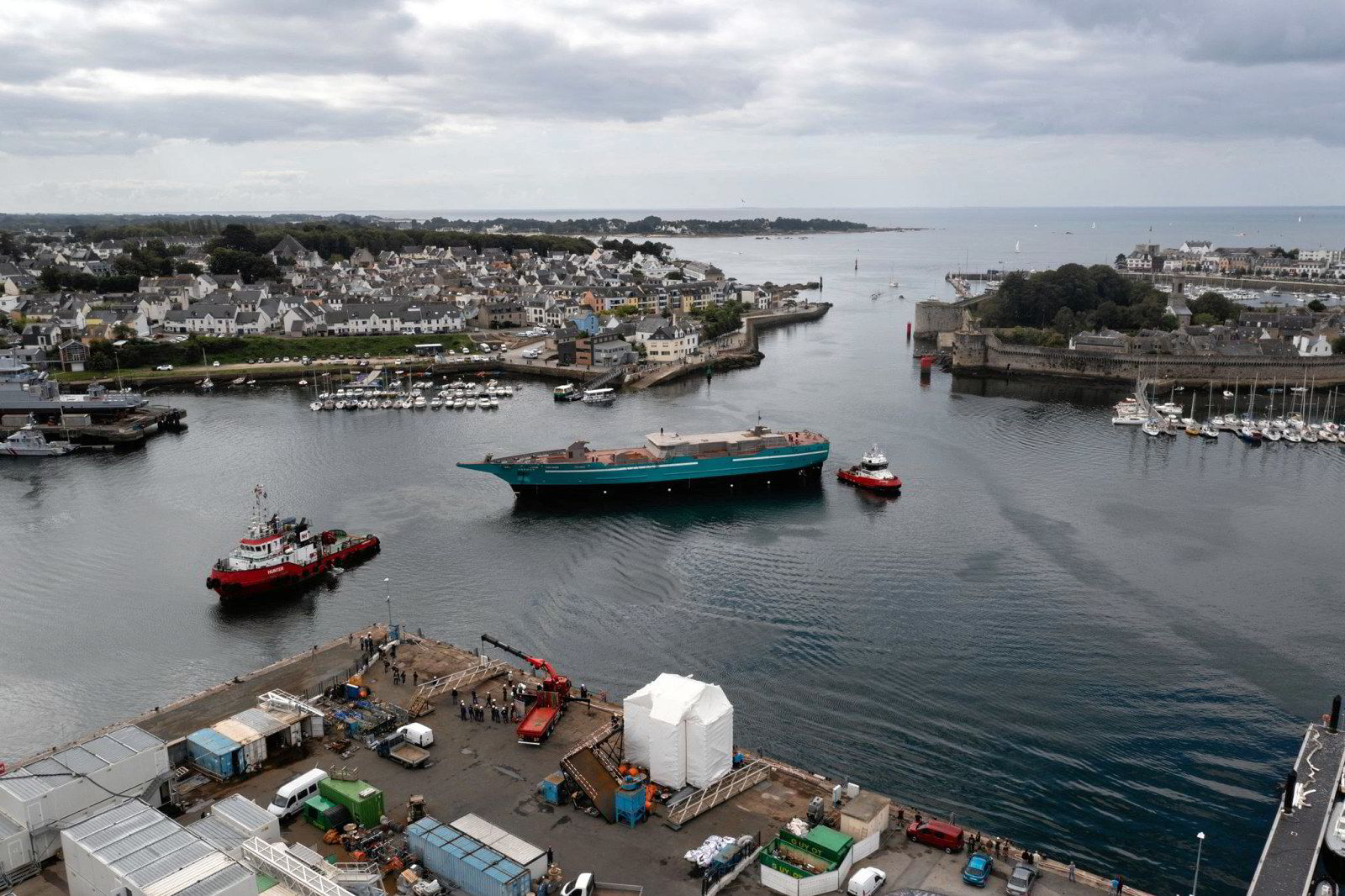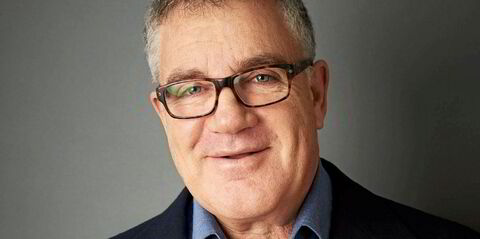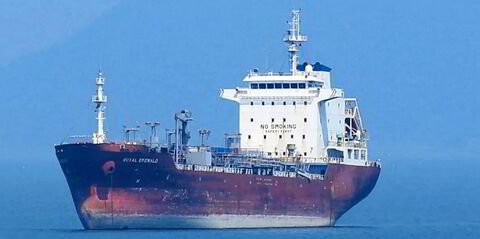French entrepreneur Guillaume Le Grand discovered the power of wind and sails at an early age, but he also realised sail propulsion was not being widely used to ship goods any more, despite its high efficiency.
Le Grand says this was coupled with an understanding that our planet might become uninhabitable in a short time and that shipping is going to struggle to decarbonise. And he points to revolutionary changes in routing and communications, as well as innovations like carbon masts and mechanised rigging.
Throw in a new demanding generation of consumers, and Trans Oceanic Wind Transport was born.

TOWT is the Brittany-based company set up by Le Grand and partner Diana Mesa that has been moving small shipments of cargoes such as coffee, organic wines and olive oil around Europe and across the Atlantic for small businesses since 2011.
This year has brought two high points for chief executive Le Grand as TOWT prepares to transform.
The company received its first newbuilding hull, which was towed into Concarneau in northwest France from Romania in what Le Grand calls a “quite a moving moment”. Signing a contract for a second vessel was also “quite something”.
There have been lows too. He recalls 2017, when TOWT’s warehouse and their home burned down.
There will be more emotion in 2024 with the delivery of the first newbuilding in June.
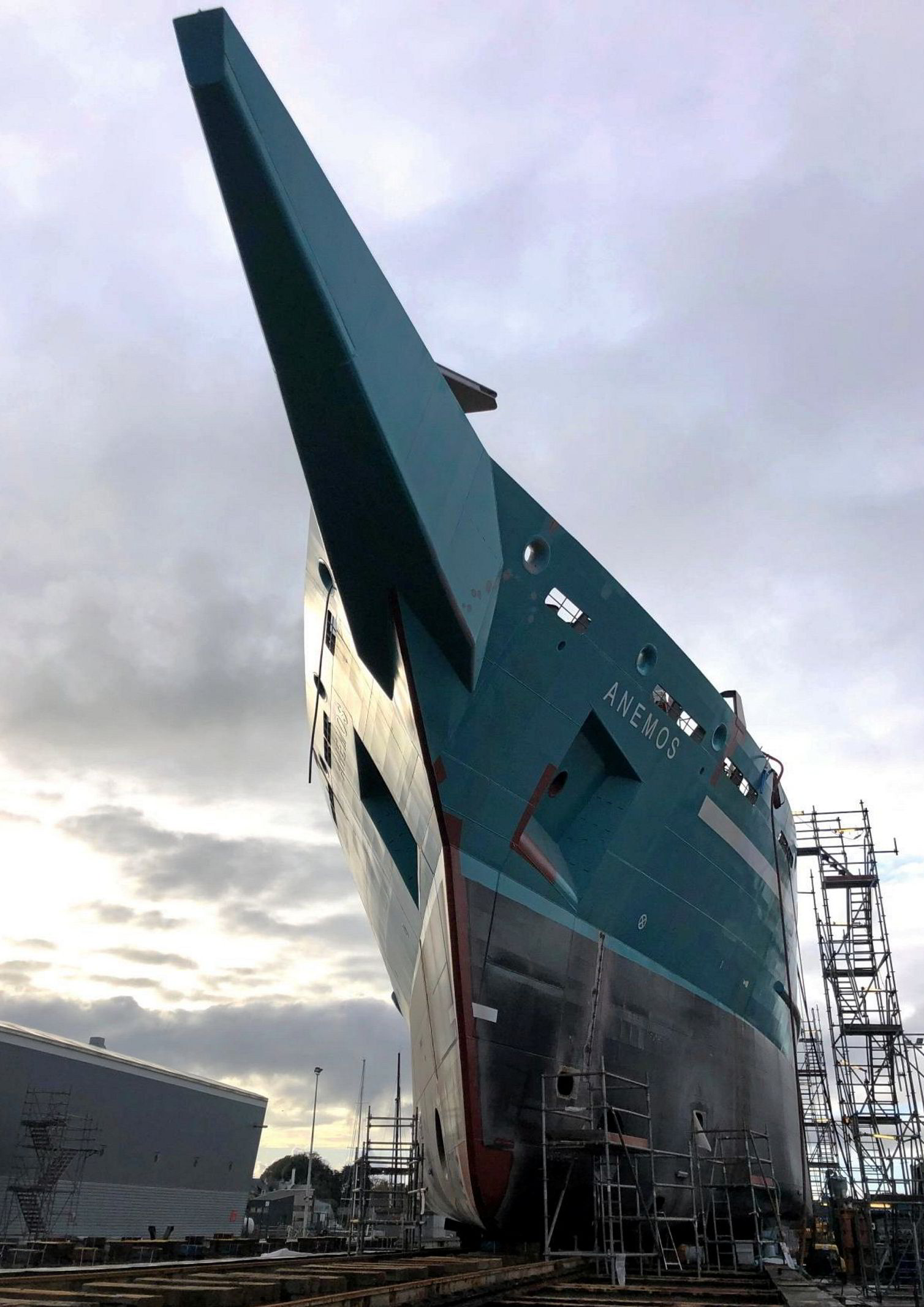
Le Grand says that with its vessels principally using sail propulsion, this offers “drastic CO2 reductions” with the company’s Anemos brand providing data for end-customers on the origin of the product and how it has reached them.
The newbuildings will also be able to offer a Europe to New York Atlantic crossing of less than two weeks.
Le Grand, who is still mindful of TOWT’s roots, describes himself as visionary, passionate, determined.
He says the company is aiming to start “slowly” — another pair of newbuildings is planned — and “climb the stairs progressively” together as the fleet grows.
“At the moment the commercial traction sets the need to a minimum of 10 vessels — while we also consider developing an innovating rigging, but this is going to be a different story,” he says.
